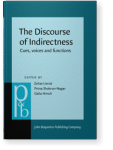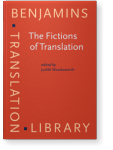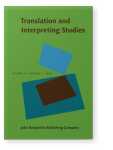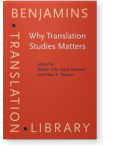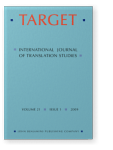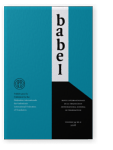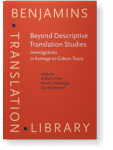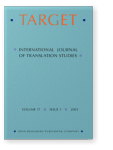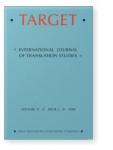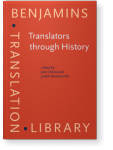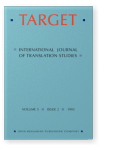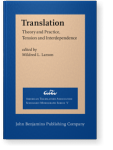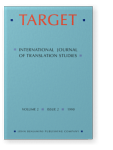Rachel Weissbrod
List of John Benjamins publications for which Rachel Weissbrod plays a role.
2020 Anne Frank’s Diary – The Graphic Adaptation as a case of “indirect translation”: Integrating the principle of relevance with Bakhtinian concepts The Discourse of Indirectness: Cues, voices and functions, Livnat, Zohar, Pnina Shukrun-Nagar and Galia Hirsch (eds.), pp. 119–142 | Chapter
The 2017 adaptation of Anne Frank’s diary into a graphic novel by Ari Folman and David Polonsky is addressed in this article as a case of indirect translation, a concept developed by Ernst-August Gutt on the basis of relevance theory. According to Gutt, indirect translation “interpretively… read more
2018 Chapter 14. Illustrations and the written text as reciprocal translation: Two illustrated versions of Anonymous Belfi ha-Gadol The Fictions of Translation, Woodsworth, Judith (ed.), pp. 233–252 | Chapter
2016 T. S. Eliot, anti-Semitism, and Hebrew translation: Image construction through text selection and paratexts Translation and Interpreting Studies 11:2, pp. 248–267 | Article
T. S. Eliot’s early poems, as well as his letters and prose, contain expressions of anti-Semitism. This article deals with the way in which Hebrew translators and others involved in the production of translations, such as scholars contributing introductions, have treated this issue. Based on the… read more
2010 Translation Studies and mass media research Why Translation Studies Matters, Gile, Daniel, Gyde Hansen and Nike K. Pokorn (eds.), pp. 115–124 | Article
Taking Israel as a case-study, this paper argues that Translation Studies can contribute to research dealing with multilingualism and multiculturalism as reflected in the mass media. Following ideological and demographic changes in Israeli society, the use of languages other than Hebrew is nowadays… read more
2009 Philosophy of translation meets translation studies: Three Hebrew translations of Kipling’s “If ” in light of Paul Ricœur’s “Third Text” and Gideon Toury’s “Adequate Translation” Target 21:1, pp. 58–73 | Article
Though there are no clear-cut boundaries between the philosophy of translation and translation studies, they are obviously not the same. They differ not only in how they address their subject matter but also in that they occupy different “niches” in the culture. In the terminology of Bourdieu, they… read more
2008 Coping with racism in Hebrew literary translation Babel 54:2, pp. 171–186 | Article
This article examines the treatment of racism in Hebrew literary translation. It relies on culture theorists such as Foucault, Said, Fanon and Bhabha who have analyzed the relations of a society with individuals and groups whom it regards as “others”. The texts discussed have been selected because… read more
2008 Implications of Israeli multilingualism and multiculturalism for translation research Beyond Descriptive Translation Studies: Investigations in homage to Gideon Toury, Pym, Anthony, Miriam Shlesinger † and Daniel Simeoni (eds.), pp. 51–66 | Article
1999 Mock-Epic as a Byproduct of the Norm of Elevated Language Target 11:2, pp. 245–262 | Article
Beginning in the late nineteenth century, Hebrew underwent a process of revival. Despite the growing stratification of the language, literary translations into Hebrew were governed by a norm which dictated the use of an elevated style rooted in ancient Hebrew texts. This norm persisted at least… read more
1995 2. Translators and the development of national languages Translators through History, Delisle, Jean and Judith Woodsworth, pp. 25–66 | Chapter
1991 Translation of prose fiction from english to hebrew: a function of norms (1960s and 1970s) Translation: Theory and Practice, Tension and Interdependence, Larson, Mildred L. (ed.), pp. 206–223 | Article
1990 Linguistic Interference in Literary Translations from English into Hebrew of the 1960s and 1970s Target 2:2, pp. 165–181 | Article
In the years leading up to the 1960s and in the beginning of that decade the system of non-canonized literature in Hebrew was inundated with translations from English. These were usually characterized by strong interference of that language. In the system of canonized literature, on the contrary,… read more
